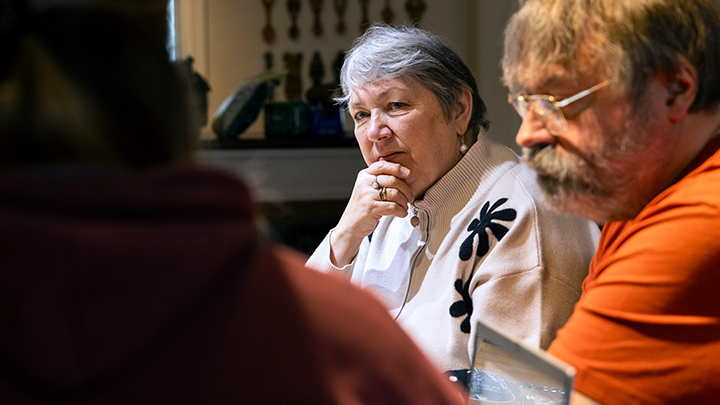
April 12, 2021

Advance Care Planning, and creating your own Personal Directive, relieves your family of the burden of guessing your medical wishes, says Heather Shantz, a former palliative care nurse, who’s living with cancer. Photo Supplied.
Story by Kim Jackson
While you can’t predict when illness may strike, with Advance Care Planning (ACP) you can make your medical wishes known, and bring comfort to your loved ones, should you become unable to make your own decisions.
“In the event you’re unable to speak for yourself, it’s a gift you give to your family to relieve them of the burden of guessing what your wishes would be,” says Heather Shantz, a former Alberta Health Services (AHS) palliative care nurse, who’s living with cancer.
“That burden is heavy. Planning for it doesn’t need to be scary. It’s a positive way of sharing your voice and having your wishes and values known, whatever those are.”
Shantz, who was diagnosed with metastatic breast cancer in January 2019, is sharing her story to encourage others — with or without medical conditions — to take advantage of the benefits of ACP.
ACP is a way to help you think about, talk about and document your healthcare wishes. Part of ACP involves creating a Personal Directive — a legal document that assigns someone you trust to make decisions on your behalf if the need arises.
Shantz believes this is the most important piece of an advance care plan. “It’s a way of showing love and concern for the people in your family. People put it off because it somehow frightens them — but once it’s done, you can forget about it and go on living your life.”
Before her diagnosis, Shantz worked 17 years as a clinical nurse specialist in palliative care. Her experiences with the dying let her witness first-hand how an effective plan helps grieving family members when they need clarity the most. Her experiences also prepared her own family when it came time to discuss her wishes for treatment and end-of-life care.
After weighing the “burden and benefits” of her medical treatment, she shared her wishes with her four children. As well, she completed what’s often called a “green sleeve” — a document that details her entire care plan. It sits on the top of her fridge at home, handy for all, in the event her health declines. (It’s worth noting that EMS know to look on top of a fridge for green sleeves, as do home care providers.)
“I wouldn’t want my kids to be left to make decisions without knowing what I wanted. It needs to be done and it wasn’t hard,” Heather adds.
For the last two years, Shantz has enjoyed a good quality of life thanks to a targeted treatment that extended her prognosis from months to years. It’s allowed her more time with her family, which they’re all grateful for.
She reminds all that you don’t need to be living with a cancer to proactively think about an ACP and prepare your own green sleeve. Accidents can happen to anyone at any time — and it’s wise to be prepared.
“It’s like insurance. You have it — and hope you don’t need it.”
National ACP Day falls on April 16. Watch our video, Breaking the Top 10 Barriers to Writing a Personal Directive, to learn more about ACP and how to prepare your Personal Directive. Also visit Insite, or watch more of Heather’s story on YouTube.